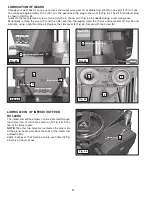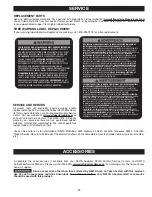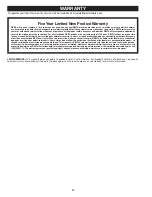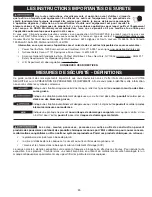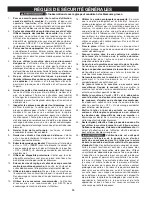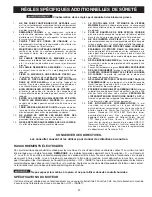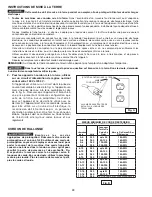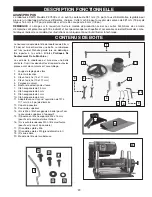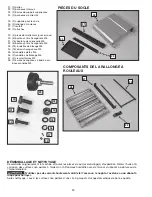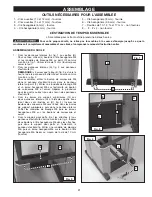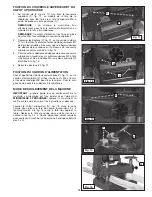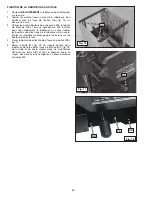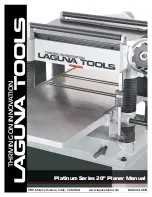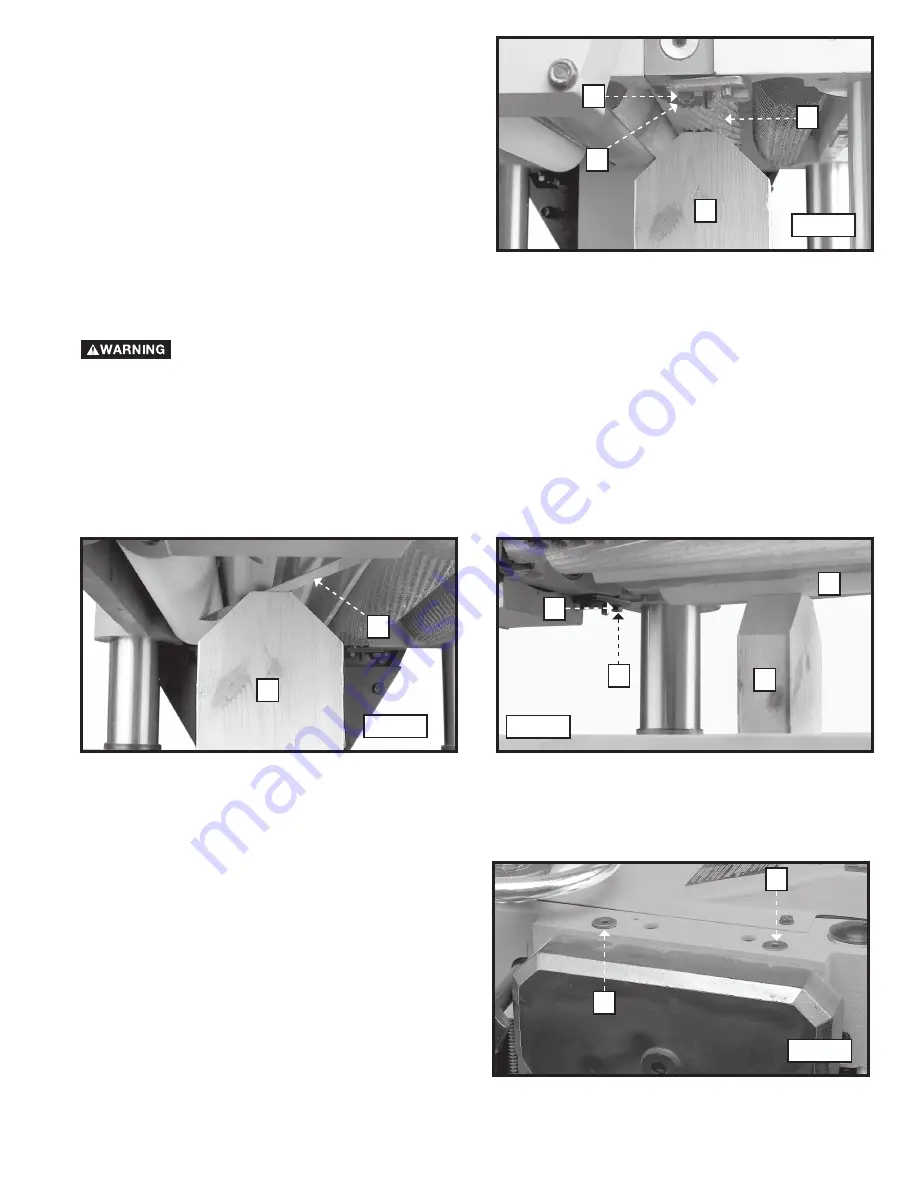
19
3. Move the gauge block (A) Fig. 52 without the feeler
gauge under one end of the infeed roller (C). The
bottom of the infeed roller (C) should touch the top
of the gauge block (A).
4. To adjust, loosen the nut (D) Fig. 52 and turn the
adjusting screw (E) until that end of the infeed roller
touches the top of the gauge block. Tighten the nut
(D).
5. Repeat this adjustment with the gauge block on the
opposite end of the infeed roller.
1. Make sure the knives are adjusted properly as ex plained under
How To Check, Adjust, And Re place Knives.
2. Place the gauge block (A) Fig. 53 on the table directly underneath the cutterhead. Place a 0.040" (1.01 mm) feeler
gauge (B) on top of the gauge block. Raise or lower the head assembly until one of the knives touches the feeler
gauge. Tighten the head locking knobs.
3. Move the gauge block (A) Fig. 54 without the feeler gauge under the end of the outfeed roller (C). The bottom of the
out-feed roller (C) should touch the top of the gauge block (A).
4. To adjust, loosen the nut (D) Fig. 54 and turn the screw (E) until the outfeed roller is properly adjusted.
5. Repeat this adjustment procedure on the opposite end of the outfeed roller.
HOW TO ADJUST THE TENSION OF THE INFEED AND OUTFEED ROLLERS
The infeed and outfeed are under spring tension. The
tension should be sufficient to feed the stock uniformly
without slip ping, but should not be so tight that it causes
damage to the board. The tension should be equal at
both ends of each roller.
To adjust the spring tension of the infeed roller, turn two
screws, one of which is shown at (A) Fig. 55. The other
screw is located on the opposite side of the machine.
Adjust the two screws (A) until
FOUR
threads show
above the table casting. Further tension adjustment may
be necessary.
To adjust the spring tension of the outfeed roller, turn two
screws, one of which is shown at (B) Fig. 55. The other
screw is located on the opposite side of the machine.
Adjust the two screws (B) until
ONE
thread shows above
the table casting. Further tension adjustment may be
necessary.
A
E
D
C
HOW TO ADJUST THE HEIGHT OF THE OUTFEED ROLLER
A
B
Fig. 52
Disconnect the machine from the power source.
The outfeed roller was adjusted at the factory to be
0.040" (1.01 mm) below the cutting circle
. To check and adjust
the height of the outfeed roller:
A
C
E
D
Fig. 53
Fig. 54
A
B
Fig. 55


















